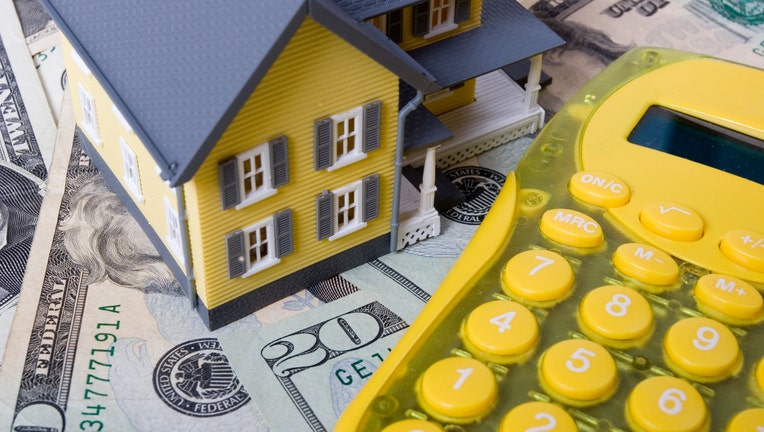How to get a mortgage (and save money) if you're unemployed right now

Being laid off because of coronavirus could throw a wrench in your mortgage plans.
The coronavirus pandemic has pushed unemployment claims past the 30 million mark as many businesses across the nation remain closed.
The CARES Act offers mortgage forbearance for eligible homeowners who have been laid off but refinancing while interest rates are low can help to permanently reduce mortgage costs and lower monthly payments.
Mortgage refinancing costs vary depending on location but with the Federal Reserve's recent interest rate cuts, most people will likely save more money by refinancing now. See what mortgage rates and loan options are available via Credible's simple online tool.
If you've experienced an income drop because of the virus but are still interested in taking advantage of low mortgage rates by refinancing, taking out a second mortgage or buying a home or other real estate, it's helpful to know what options exist.
Guide to coronavirus mortgage relief options
The coronavirus outbreak puts home buyers and homeowners in an interesting position. Mortgage rates are low but getting a home loan may be an uphill battle.
WHY IT'S A GOOD IDEA TO REFINANCE YOUR MORTGAGE RIGHT NOW
Jarred Kessler, CEO and founder of EasyKnock, estimated that 25 percent of the housing market didn't qualify for a home loan prior to the virus crisis and said the current percentage is most likely closer to 35 to 45 percent. "This can be blamed on employment being a large part of the criteria to be accepted, and unemployment rates are at a high currently."
Whether you can qualify for a mortgage hinges on a few factors. See if you can get pre-approved for a home loan now and compare mortgage rates from vendors by sharing some information with Credible.
However, timing does matter. If you haven't applied for a mortgage yet, getting approved for loans can be more challenging if you don't have a verifiable source of income. While lenders can consider things like emergency unemployment benefits you might be receiving, you may have a harder time getting a loan without a steady paycheck.
HOW TO GET PRE-APPROVED FOR A MORTGAGE
In scenarios where you lost your job after submitting your application for a home loan, it's best to contact your mortgage lender and let them know you've been laid off or if you're experiencing any financial hardship. Whether the mortgage still goes through at that point can depend on:
How quickly you anticipate being able to go back to work.
The strength of your credit score, credit reports and credit history.
Missed payments.
Your debt-to-income ratio (DTI).
What income you have from other sources, such as unemployment benefits or a side job.
The size of your down payment.
If you submitted your application with a co-borrower, there may be fewer obstacles to getting a mortgage during coronavirus. The lender can look at your co-borrower's income, debt-to-income ratio, credit reports, credit score and assets to gauge their ability to make the monthly mortgage payments.
UNEXPECTED ITEMS SHOWING UP ON YOUR CREDIT REPORTS? THIS COULD BE WHY
Income requirements to qualify for a mortgage
Technically, there is no minimum dollar amount of income you need to qualify for a mortgage — either during coronavirus or otherwise. But the 28/36 rule says home buyers should spend no more than 28 percent of their income on housing and no more than 36 percent of their income on combined debt payments.
If you're applying for a mortgage loan to take advantage of low mortgage rates as a first-time buyer or refinancing from an adjustable-rate to a fixed rate, your debt-to-income ratio can play a big part in whether you're able to get approved after a layoff.
Your DTI may have been relatively low while you were working but if your income took a hit because of how the virus has impacted the economy, your ratio may be much higher now.
The good news is there are other things you can use to persuade a lender to approve you for a mortgage even if you've been laid off. Low debt levels, a good to excellent credit score, a larger down payment, significant cash savings and/or investment accounts can all help to lower your risk profile for mortgage loans.
How to avoid debt during the coronavirus crisis
If you already have a mortgage loan and you've been laid off, there are some things you can do to manage debt until you're able to return to work. Kessler said the first step is to communicate with your lenders to make them aware of your financial situation so they can work with you to find a solution.
For example, you may be able to take advantage of federal mortgage forbearance if you have an eligible loan. You can defer payments for up to 180 days if you have a government-backed loan, which includes FHA, VA and USDA loans, in addition to loans owned by Fannie Mae and Freddie Mac.
THE BASICS OF NO-CLOSING COST MORTGAGE REFINANCING
"The Federal government has put a lot of pressure on lenders to allow homeowners to go into forbearance -- thus giving them time to catch up on their financials, and not having to worry about paying their mortgage during COVID," Kessler said.
Applying for unemployment benefits or assistance programs can help you bring in some income for the short-term. The CARES Act expanded unemployment to include federal emergency benefits as well as benefits for self-employed individuals and people who aren't eligible for traditional unemployment.
Aside from managing mortgage debt, know what's available if you have other debts, such as student loans or credit cards. If you owe federal student loans, for example, payments are automatically paused for you through September 30, 2020. And if you owe credit card debt, you can reach out to your card issuers to see if they offer hardship programs to help avoid falling behind on payments.

